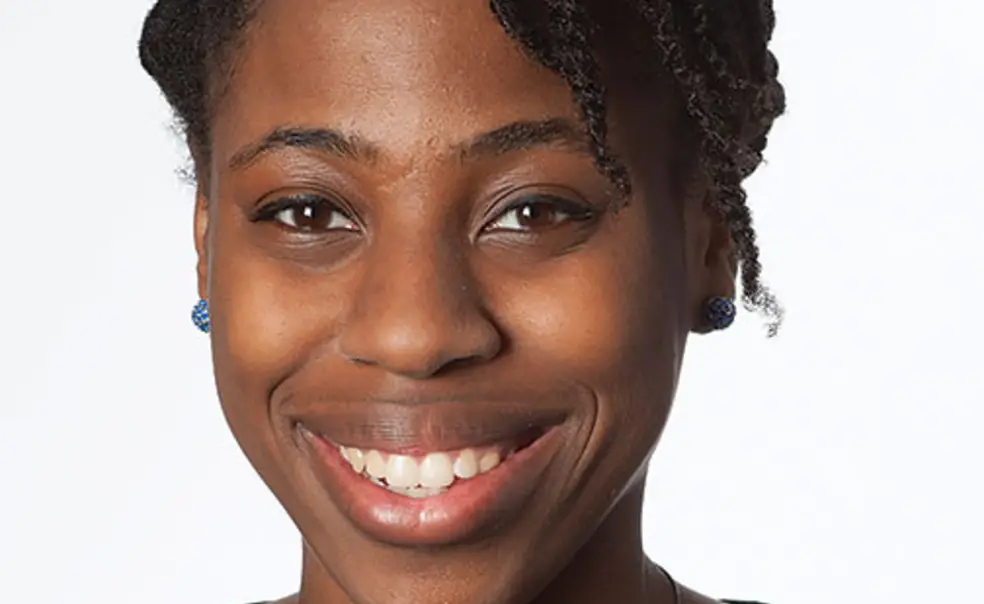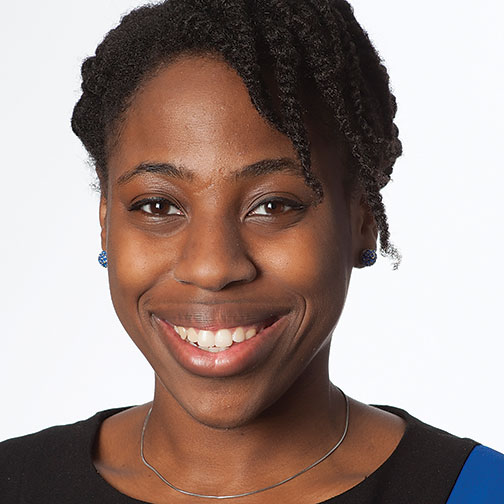Q&A: Rana Campbell '13 on Race in the Ivies
Freelance writer and content strategist Rana Campbell ’13 covers a variety of topics on her blog, from fashion to branding to celebrity culture. Last spring, she ventured outside her usual repertoire to tackle a subject that held personal significance: the experiences of black students at elite schools. Campbell reached out to a network of African-American students and alumni to report two stories, “Black Women in the Ivy League: ‘Everything’s Not Always So Pretty at the Top,’” published by Madame Noire, and “Black Men at Princeton Share Their Experiences,” published on The Huffington Post (an extended version is available here). PAW spoke with Campbell about what she learned from her reporting and the feedback she received after the stories were published.
What got you started on the path of writing about the experience of black students at Princeton and other Ivy League schools?
It was around the time when Kwasi Enin, the Ghanaian student from New York, got into all eight Ivy League schools. I thought, wow, the newspapers are really putting such a big emphasis on the fact that he got into all these schools. No one seemed to talk about what’s going to happen to him once he chooses one. As a black man, there’s so much that is going to happen to him over these next four years. I thought it would be interesting to explore what it’s like to be a black student in the Ivy League. I started asking people to send me their thoughts and reflections. I didn’t prompt it — I let them send me whatever they wanted to talk about. People really wrote about a variety of things. I actually got more in-depth responses from black men. I got pages and pages — essays, basically — and I had to edit them down.
What differences did you notice in the responses you received from women and men?
I think with the black men, there were a lot of things relating to self-esteem. You had men who felt they were viewed only for their athletic abilities. One of my good friends sent me a response saying that the whole time he was at Princeton, he never felt good enough, he never felt smart enough. And that’s something, as one of his closest friends, I would never have guessed.
When I talked to black women, a lot of them spoke about more concrete things — the quality of education, the legacy of slavery on campus, building communities with other women of color. There were some who talked about body image.
They weren’t all negative. Some were overwhelmingly positive. Some said it was the best four years of their life.
In the stories you’ve shared, there are some parts that may apply to a broad range of students at Ivy schools — feeling pressure and self-doubt, or finding it difficult to fit in. In what ways do you think the experience is different for students of color?
I think the part that might be the most difficult to navigate is what do you do with these feelings. Students of color might not have a strong social group to go to and unpack these issues. One of the men I spoke to put it perfectly: He said there’s an expectation that you’re supposed to endure it all in silence. A lot of black men and women come into these institutions thinking that they’re here on a mission. I’ve made it into one of the best colleges in the U.S., I can’t sit here and complain. To talk about these issues, with people outside your core group — there’s a lot of risk that comes with that.
Do you think that the “I, too, am Princeton” campaign, and the “I, too, am Harvard” one that preceded it, are reactions to this feeling of enduring things in silence?
They are reactions. They are trying to break the silence. But even then, it’s kind of ironic because it’s through photos, and photos are in a sense silent. I definitely see those campaigns as ways of talking about issues and trying to virtually break the silence. To me, the next step is what’s actually being done? And what’s going to be done in the future for people coming in after this generation of Princeton students?
How did your own experience compare with the views you received in reporting these stories?
I really feel like my experience prior to Princeton was a training ground for Princeton. I didn’t feel as bothered by some things. I went to a college-prep school in seventh grade, and before that, I was in a predominantly black elementary school. At prep school, I had to deal with being the only black girl in class for the first time. I kind of learned to fit in.
When I went to Princeton, I saw other people feeling out of place and didn’t know how to help them. … You think of college as a place where you find yourself, but it’s hard to find yourself in a community where you feel out of place.
Something that was important for me — and something I learned in middle school and high school — was finding a group of people that I can relate to. For people that get caught up in Princeton as only a place for academics, it can be very, very isolating. I was in a dance company, I ran a club. So I felt like I was integrated into different parts of the Princeton community.
After you published your articles, what kind of feedback did you receive from Princeton alumni?
When I sent it out to the black-alumni listserv, I heard from a lot of people who said it seemed like Princeton hadn’t changed at all. … At the same time, I got an overwhelmingly positive response from alumni who are not people of color. I had one alumna email me and say these articles resonated with her as someone who was not in the dominant social sphere. She identified herself as being from an inner-city, working-class family, and she too felt different at Princeton. People seemed to appreciate the stories, and thought that they highlighted a lot of things that aren’t spoken about.
Interview conducted and condensed by Brett Tomlinson
READ MORE:
“Black Women in the Ivy League: ‘Everything’s Not Always So Pretty at the Top’” — Madame Noire
“Black Men at Princeton Share Their Experiences” — The Huffington Post













1 Response
Richard Perea *72
10 Years AgoLearning to ‘Self-Talk’
Rana Campbell ’13 brings up a particularly good point (posted Oct. 3 at PAW Online): the reluctance to admit that one “might not be bright enough,” and the truth that this is a feeling all overachievers from the hinterlands feel — regardless of color — when they get to an Ivy school. You realize upon meeting your new Ivy classmates that you’re no longer necessarily the brightest one in the room. And to be of color (black or brown) means you probably don’t have that easy, prep-school cohort to commiserate with and “put it into perspective.”
I have found that, in business, the strongest person in a negotiation is the one who’s willing to walk out of the room. The relevance here is that adopting that position takes beaucoup self-awareness. Once one can achieve that, then doubts leave the room. I would advise students, regardless of color, to develop the ability to “self-talk” and, paraphrasing Polonius, be truthful to yourself. If there’s one person to whom you should never lie about how you feel, it’s yourself.